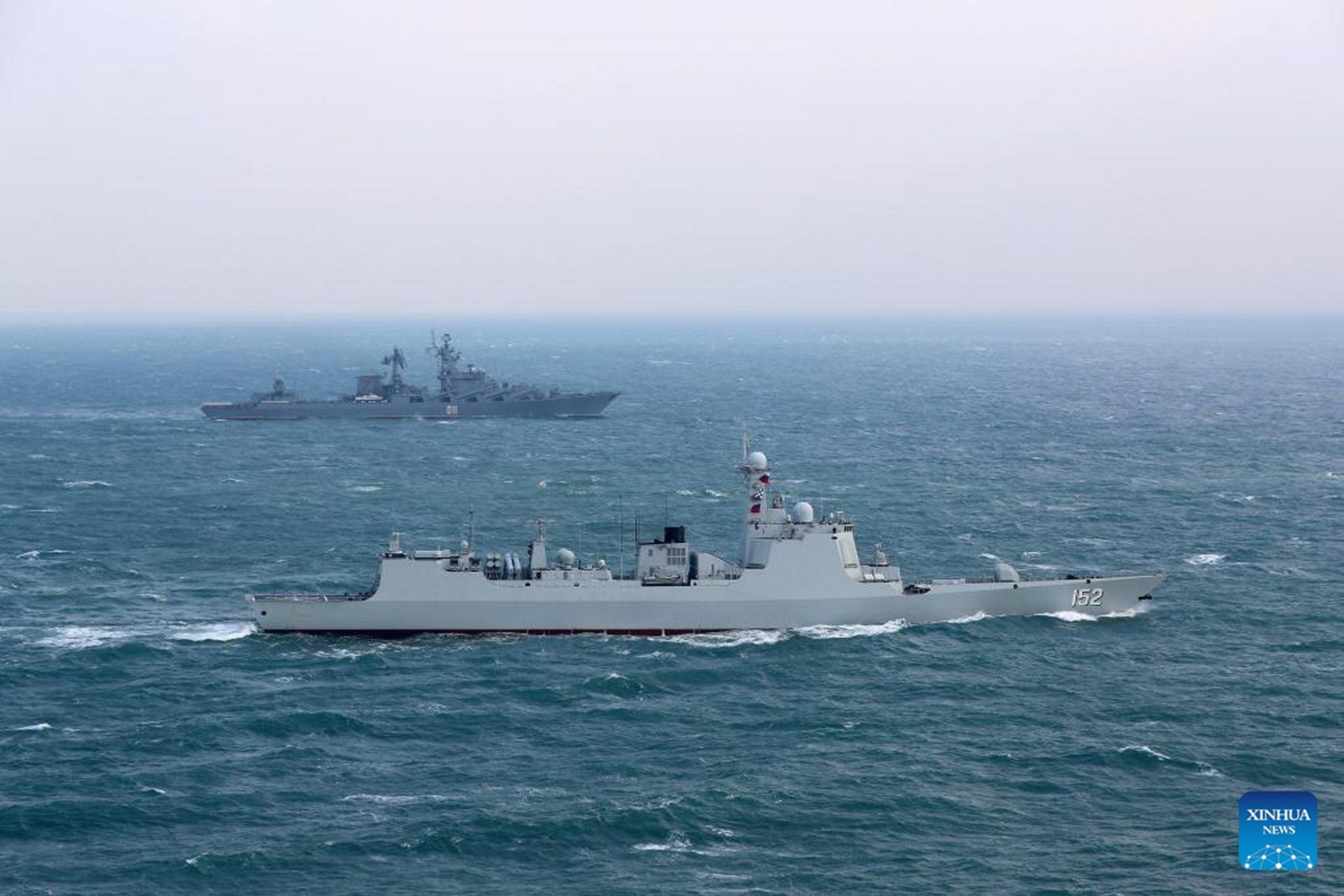Breaking News
Russia to Join China's Northern/Interaction-2024 Military Exercise in Sea of Japan.
According to information published by the Chinese MoD on September 9, 2024, Russia will deploy naval and air forces to participate in China's Northern/Interaction-2024 exercise, set to take place in the Sea of Japan and the Sea of Okhotsk in September.
Follow Army Recognition on Google News at this link

Chinese destroyer Jinan and Russian cruiser Varyag. (Picture source: Xinhua News)
Since the early 1990s, Russia and China have cultivated a partnership that has strategically deepened, particularly following the geopolitical shifts of 2014. The relationship was notably fueled by Russia's need to diversify its alliances amidst growing tensions with the West and by China’s ambition to enhance its technological and military capabilities.
Military-technical cooperation between Russia and China initially surged with significant arms deals from Russia, helping to enhance China’s military modernization. However, this aspect of their cooperation has seen a shift. While direct arms sales have become less prominent, joint military projects, particularly in areas like heavy-lift helicopters, submarines, and missile technologies, have gained traction. Such projects are increasingly characterized by joint development rather than mere purchase, reflecting a deeper level of technical integration and mutual dependency.
Despite these advancements in cooperation, the relationship has faced constraints. The growth in military-technical cooperation has not been linear and has plateaued in recent years. This plateau is partly attributed to China's growing self-sufficiency in defense technologies and the impact of Western sanctions on Russia, which have limited the scope of collaboration to some extent. Moreover, while China has largely been a beneficiary in terms of technology acquisition, it has been cautious in extending help to Russia, especially post-2022, to circumvent Western sanctions.
In terms of military exercises and operations, both nations have demonstrated a high level of collaboration, characterized by an increase in joint exercises' complexity and coordination. However, like their technical cooperation, the frequency and expansion of these exercises have faced limits due to external factors such as the COVID-19 pandemic and the ongoing conflict in Ukraine.
Politically, the partnership benefits from high-level engagements and statements that reinforce a mutual stance against perceived Western hegemony, notably articulated in the leaders' summits and public declarations. This aspect of their relationship offers significant symbolic value, particularly for Russia, as it seeks to counteract international perceptions of isolation.


























